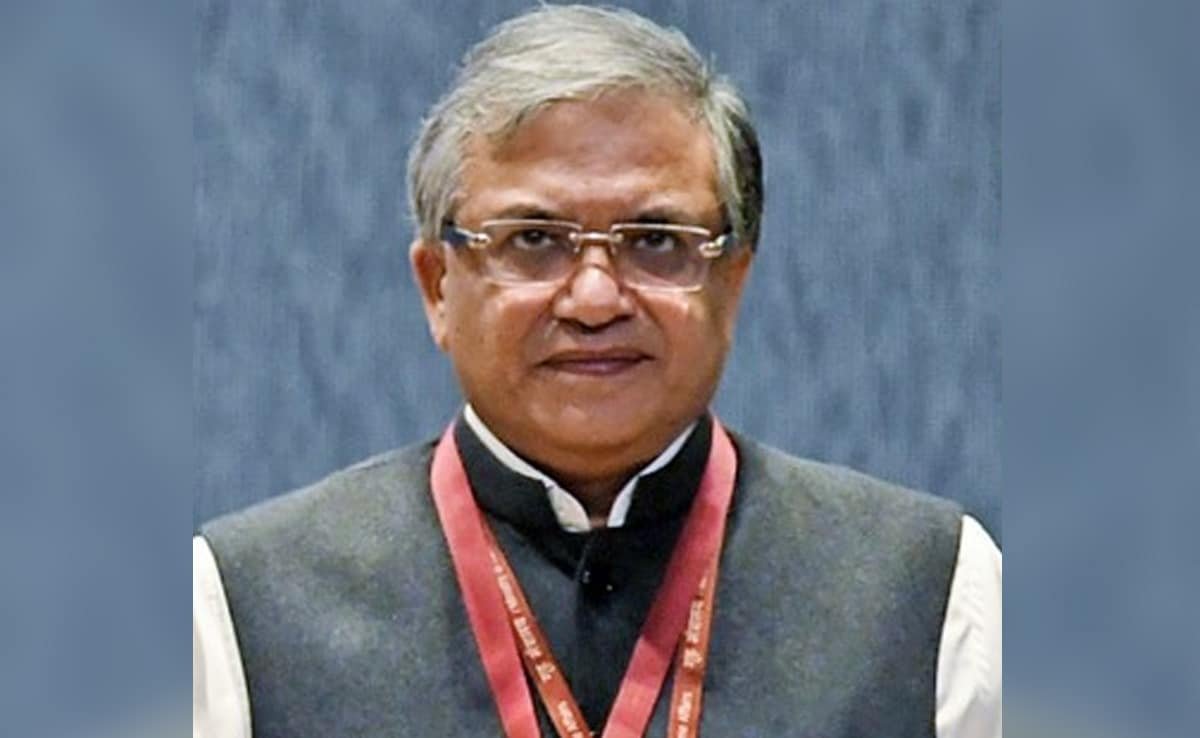Gyanesh Kumar is the new Chief Election Commissioner, succeeding Rajiv Kumar. His appointment follows a meeting of the Election Committee amidst some concerns.
Gyanesh Kumar has been appointed as the new Chief Election Commissioner (CEC), succeeding Rajiv Kumar. The announcement was made by the government following a meeting of the Election Committee, which included Prime Minister Narendra Modi, Union Home Minister Amit Shah, and Leader of the Opposition Rahul Gandhi.
Mr. Kumar, a 1988-batch IAS officer from the Kerala cadre, will assume the role of CEC after Rajiv Kumar demits office. His tenure will extend until January 26, 2029, during which he will oversee 20 Assembly elections, the Presidential and Vice-Presidential elections in 2027, and preparations for the 2029 Lok Sabha election.
Background of Gyanesh Kumar
Gyanesh Kumar was previously part of the Union Home Ministry and played a role in drafting the bill that revoked Article 370 in Jammu and Kashmir in 2019. He is also known to have close ties with Amit Shah.
Objections and Concerns
The Congress party has raised objections to the selection process, citing that the law on the appointment of the Chief Election Commission is currently under review by the Supreme Court. They allege that the government seeks to control the Election Commission and disregards its credibility. Rahul Gandhi submitted a note of dissent during the Election Committee meeting.
The government has defended its decision, stating that postponing the selection process would create a vacancy in the poll commission. They also claim to have sought legal opinion before proceeding with the appointment, as the court has not issued a stay order.
Appointment Process
Prior to the enactment of a law on the matter in 2023, the President of India appointed the Chief Election Commissioner based on the Prime Minister’s advice. Traditionally, the seniormost of the remaining Election Commissioners would assume the position.
The Chief Election Commissioner and Other Election Commissioners (Appointment, Conditions of Service And Term of Office) Act, 2023, mandates that a committee led by the law minister shortlist five candidates. The final selection is then made by a team consisting of the Prime Minister, the Leader of the Opposition, and a cabinet minister.
This law replaced the Supreme Court’s guideline that included the Chief Justice of India as part of the selection committee. The replacement of the CJI with a cabinet minister has been challenged in court, with petitioners arguing that it compromises the committee’s neutrality.
Rajiv Kumar’s Tenure
Rajiv Kumar’s tenure as CEC concludes after overseeing 31 assembly elections and the Lok Sabha election 2024. He served a four-and-a-half-year term at the election commission, with approximately three years as Chief Election Commissioner.
A retired 1984-batch IAS officer from the Bihar-Jharkhand cadre, Rajiv Kumar joined the poll panel as Election Commissioner on September 1, 2020, succeeding Ashok Lavasa. During his time, the poll panel conducted the Bihar Assembly elections during the COVID-19 pandemic and held the 2022 elections for the President and Vice President.
The Election Commission acknowledged Rajiv Kumar’s contributions, highlighting reforms across various domains, including structural, technological, capacity development, communication, international cooperation, and administration. The commission noted the peaceful conduct of elections with minimal repolls and incidents of violence during his tenure.
Key Events During Rajiv Kumar’s Leadership
Rajiv Kumar’s tenure also included holding elections in Jammu and Kashmir, the first since the abrogation of Article 370 in 2019. Elections in Haryana, Jharkhand, and Maharashtra were also conducted under his leadership, along with the Delhi Assembly Election.
The Election Commission reported efforts to include marginalized sections, such as PVTGs and third genders, in the electoral process. Personalized letters were sent to over 2.5 lakh centenarian voters to acknowledge their contribution to democracy. Innovative measures, like establishing polling stations in high-rise societies, were introduced to address youth and urban apathy.
Controversies and Criticisms
Rajiv Kumar’s tenure was marked by the resignation of Election Commissioner Arun Goel just before the announcement of the Lok Sabha elections 2024 dates. It later emerged that there were ‘differences’ between the two. The poll panel faced questions over the delay in releasing voter turnout data, and accusations of favoring the ruling Bharatiya Janata Party (BJP) were made by the opposition.
Final Remarks
In his farewell speech, Rajiv Kumar stated that the poll panel was unfairly blamed by those unwilling to accept electoral outcomes. He also addressed the growing tendency to target election officials after electoral contests.
Sources: https://www.ndtv.com/india-news/gyanesh-kumar-appointed-new-chief-election-commissioner-7733534
https://www.livemint.com/politics/cec-rajiv-kumar-retires-today-a-tenure-of-highs-lows-and-urdu-poetry-election-commission-gyanesh-kumar-congress-bjp-11739853499864.html
https://www.hindustantimes.com/india-news/congress-slams-gyanesh-kumars-appointment-as-cec-to-circumvent-supreme-court-scrutiny-101739850047980.html
